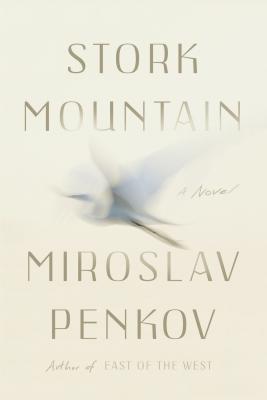Stork Mountain
tells the story of a young Bulgarian immigrant who, in an attempt to
escape his mediocre life in America, returns to the country of his
birth. Retracing the steps of his estranged grandfather, a man who
suddenly and inexplicably cut all contact with the family three years
prior, the boy finds himself on the border of Bulgaria and Turkey, a
stone's throw away from Greece, high up in the Strandja Mountains. It is
a place of pagan mysteries and black storks nesting in giant oaks; a
place where every spring, possessed by Christian saints, men and women
dance barefoot across live coals in search of rebirth. Here in the
mountains, the boy reunites with his grandfather. Here in the mountain,
he falls in love with an unobtainable Muslim girl. Old ghosts come back
to life and forgotten conflicts, in the name of faith and doctrine,
blaze anew.
Goodreads description
There is something about borderlands that are particularly conducive to magic realism. In a way they are a physical geographical manifestation of a key element of magic realism: the meeting of cultures and worlds. I was reminded as I read Stork Mountain of another magic realist book I read and reviewed recently Voroshilovgrad by Serhiy Zhadan. Both are books about borderlands, both feature an aimless young man returning to a family homeland in search of a family member. Of the two books, although I enjoyed Voroshilovgrad, I prefered Stork Mountain.
Stork Mountain is Zhadan's first novel; his collection of short stories East of West was and still is on my magic realism to-read list. It may be a first novel, but the story is expertly put together. Nothing and no one is quite what they seem. The denouement at the end took me completely by surprise and I am usually good at spotting such things. Like many a good magic-realism novel the past and the present, the myth and the here-and-now are woven together, and family history repeats itself or at the very least has echoes (sometimes misleading ones). Similarly the magic element is so woven into the story that at times the reader is not aware of it.
At its heart this is a story about relationships, in particular about the central character and his grandfather. There is a wonderful humanity about this book. All the characters are flawed, and when they respond to each other they
do so in interestingly flawed ways, because they do not understand one
another In addition to the protagonist's relationship with his grandfather, there is his longing for Elif, a girl so damaged by the relationship with her father that any hope of a relationship seems doomed.
I recommend this book to you and wait for Miroslav Penkov's next novel with great interest
I received this book free from the publisher in return for a fair review


